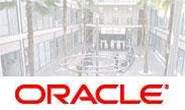Although Sun board members approved the deal at the end of April, some key shareholders appear to have joined forces to block the transaction.
A 10-Q filing with the Securities and Exchange Commission (SEC) shows that a total of three class action suits were filed, claiming that the $7.4 (£5) billion price tag is “unfair and inadequate” and that Sun’s executive team are guilty of “aiding and abetting a breach of fiduciary duty against the corporate defendants".
It has been reported that the shareholders cold be among those who bought shares in Sun when they were above the US$20 mark, and are unhappy with Oracle’s buying price of around US$9.50.
If it goes through, the deal will give Oracle valuable assets in the Java platform, MySQL open source database technology, and Sun’s flagship Solaris operating system, although some have speculated that Oracle may want to ditch or consolidate some of Sun’s middleware technology, some of which overlaps with Oracle’s BEA line.
There are also question marks over the difference between the two firms’ cultures.
Tony Byrne, founder of analyst CMS Watch argued in a blog posting that the “easy-going Sun folks” may have a hard time gelling with the “hard-nosed Oracle culture”.
He added that if the deal goes through, Sun customers should brace themselves to deal with more aggressive and harder bargaining Oracle salespeople in the future.





_(20).jpg&h=140&w=231&c=1&s=0)





 iTnews Executive Retreat - Security Leaders Edition
iTnews Executive Retreat - Security Leaders Edition
 Huntress + Eftsure Virtual Event -Fighting A New Frontier of Cyber-Fraud: How Leaders Can Work Together
Huntress + Eftsure Virtual Event -Fighting A New Frontier of Cyber-Fraud: How Leaders Can Work Together
 iTnews Cloud Covered Breakfast Summit
iTnews Cloud Covered Breakfast Summit
 Melbourne Cloud & Datacenter Convention 2026
Melbourne Cloud & Datacenter Convention 2026
 The 2026 iAwards
The 2026 iAwards












_(1).jpg&h=140&w=231&c=1&s=0)



